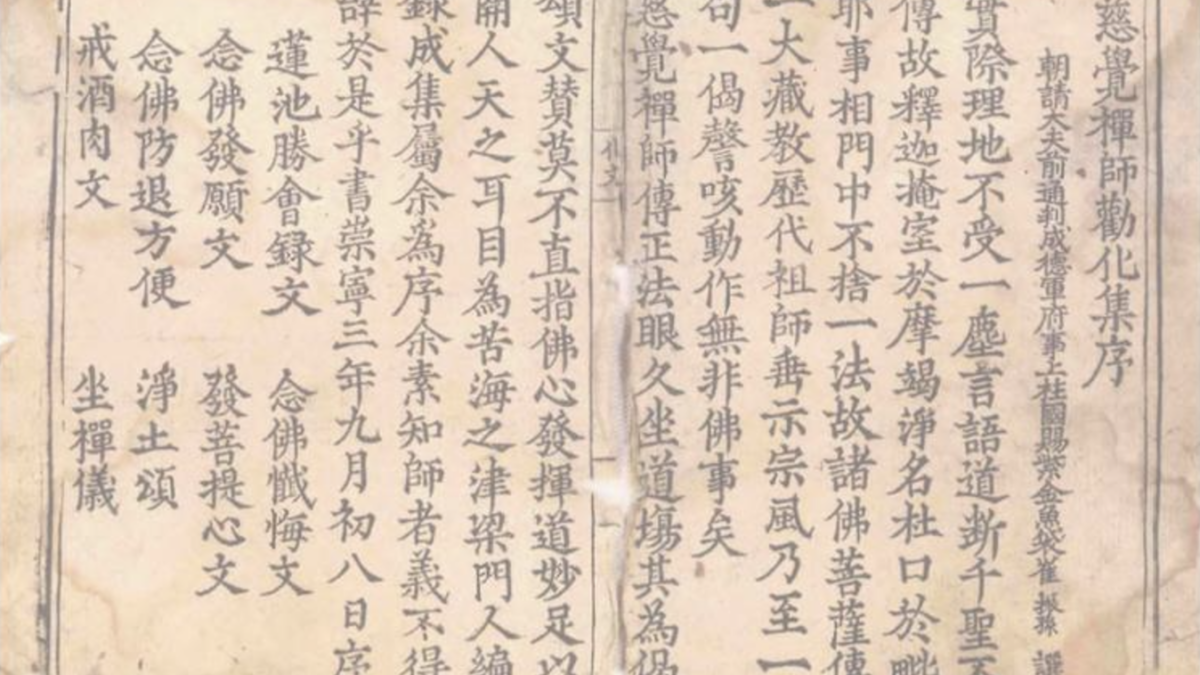Preface to Quanhuawen, printed 1104 (Russian Academy of Sciences Institute of Oriental Manuscripts)
Speaker: Jason Protass (Brown University)
Date & Time: April 24, 2024, 4:30 pm – 6:00 pm
Venue: 202 Jones, Princeton University
Abstract:
Scholars believe Chan became the dominant form of Buddhism during the Song dynasty because Chan, with its poetry, wit, and iconoclasm, most appealed to the tastes of the newly powerful literati scholar-officials and was thus most successful in the marketplace for patronage. My project introduces a different kind of Chan teachings for laity, and calls into question the marketplace as a historiographic model. I focus on a long-lost woodblock printed booklet entitled Quanhuawen 勸化文 (“Admonishments for Transformation,” preface dated 1104), recovered by Pyotr Kozlov in 1908-1909 from the abandoned Tangut city of Khara-Khoto 黑水城, currently in St. Petersburg (document number TK132). This booklet contains foundational instructions for Buddhist laypersons written by Chan Master Changlu Zongze 長蘆宗賾 (d. 1106). Zongze has long been celebrated as the author of the formative Chan monastic law-code Rules of Purity for Chan Monasteries 禪苑清規. In contrast, his Quanhuawen preserves fifteen essays for householder bodhisattvas.
In this talk, I will introduce Zongze’s teachings and focus on his essay “Buddha-activity in the Marketplace” 廛中佛事; one of several addressed to specific classes of Song society. Quanhuawen also includes the earliest extant Chan meditation instructions for laypeople as well as common Chinese Mahāyāna practices such as vegetarianism. One of my goals is to illustrate how Zongze’s Chan teachings were contiguous with broader Chinese Buddhism, and thereby to mitigate the study of Chan in a discursive vacuum. Second, I hope to shift the narrative of Song era Chan so that historians see greater contiguity with late imperial Chinese Buddhism, in contradistinction to the current emphasis on Song Chan as the precedent to Japanese adaptations qua Zen Buddhism. To do so, I will read Quanhuawen alongside Song era inscriptions, archaeological reports, Buddhist canonical texts, and literati records. This will show how Zongze’s vision for householder practices corresponded to actual practices among some laity. Overall, I aim to situate Zongze’s lost teachings within the wider landscape of Song era Buddhist lay practice, and thereby to bring the field of Chan Studies into dialogue with cognate subfields.
Speaker:
Jason Protass is William A. Dyer, Jr. Assistant Professor of the Humanities and a faculty member of the Department of Religious Studies at Brown University. A researcher of Chinese Buddhism, his publications include The Poetry Demon: Song-Dynasty Monks on Verse and the Way (2021) and essays such as “Buddhist Fund-Raising Poems and Other Lost Verses from Venerable Miaozhan’s Gāthā (Printed 1142)”.
See the original event posting here.

